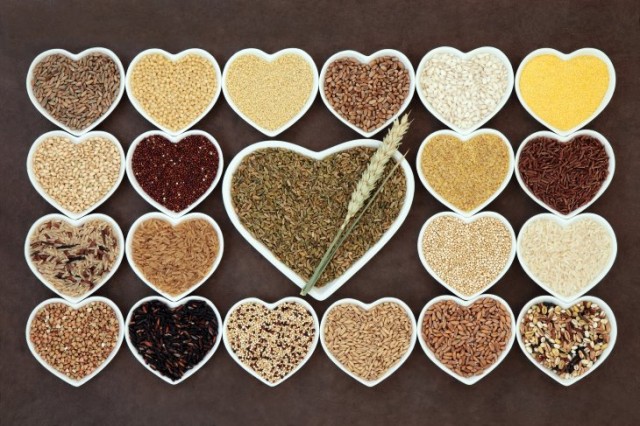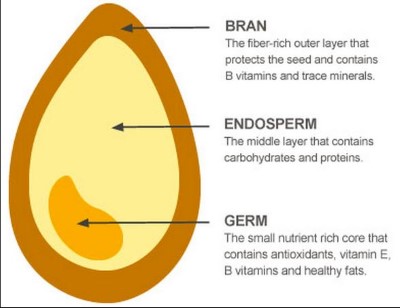The 2015 Dietary Guidelines for Americans recommend the consumption of 3 to 5 servings of whole grains for adults and 2 to 3 servings for children. Unfortunately, a large number of adults and children in the US are consuming too much refined grain flour instead of the recommended amounts of whole grains, thereby missing out on the wide array of nutritional and health benefits derived from bran coated, whole, intact grains. Studies have shown that whole grains, cooked intact, with minimal to no processing, can help help to prevent varicose veins, multiple sclerosis, and arthritis. Below are 3 other diseases that whole grains help prevent:
(1) Hypertension
An estimated 103 million Americans are suffering from high blood pressure, according to a 2018 report of the American Heart Association. Hypertension not only increases the risk of stroke and heart attack, but also increases the number of people suffering premature death from heart failure, kidney failure leading to dialysis, or the disability of blindness. Whole grains help reduce high blood pressure.
"We observed a decrease in systolic blood pressure of 5-6 mm of Hg in volunteers who ate whole-grain foods, and the effect is similar to that you might expect to get using blood pressure-lowering drugs. This drop in systolic blood pressure could potentially decrease the incidence of heart attack and stroke disease by at 15% and 25% respectively," noted the authors of a study titled "Effect of Increased Consumption of Whole-grain Foods on Blood Pressure and other Cardiovascular Risk Markers in Healthy Middle-aged Persons: a Randomized Controlled Trial.
Eating whole grains in their intact form, as opposed to using them as whole grain flour,confers significant protection against not only hypertension but also stroke and heart attack.
(2) Type 2 Diabetes
Type 2 diabetes accounts for 90% to 95% of all cases of type 2 diabetes in adults. Research suggests that intact whole grains, as opposed to grains as flour, should be part of all dietary approach for the prevention of type 2 diabetes. The findings of a 2007 study reveals that the chances of developing type 2 diabetes fell by 21% among women who consumed an additional 2 servings of whole grains per day compared to their counterparts who consumed lesser amounts. Data from a 2002 study indicate that intake of whole grains cooked intact (as opposed to whole grain flours) may be beneficial in the prevention of type 2 diabetes in men. To prevent type 2 diabetes, consider cooking whole grains in the InstantPot to keep them intact as they swell up in water due to their soluble fiber, which stabilizes blood sugar levels.
(3) Cancer
Whole grains are packed with cancer-fighting compounds, such as fiber, selenium, antioxidants, lignans, phenols, saponins, and vitamin E. Cancer is believed to develop as a consequence of genetic damage and mutation in normal cells. The saponins, phenols, antioxidants,and lignans in whole grains inhibit the initiation of cancerous cells and tumors by protecting cellular DNA from inflammation and free-radical induced damage. In addition, fiber protects against colorectal and breast cancer by acting as a sponge, accelerating the excretion of carcinogens and excess estrogens from the body.
Additional Information:

Dr. Carney Speaks to USDA for New 2020 Dietary Guidelines

Whole Grains Instead of Drugs?

Are all Carbs Bad?